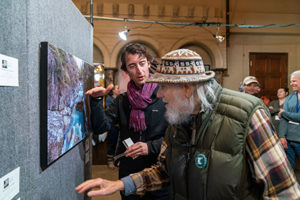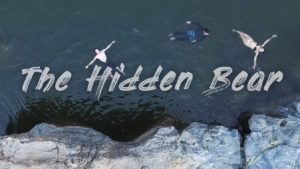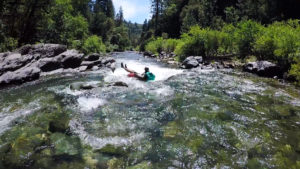Who are you? (where are you from, where do you live, why did you get into film, whatever you want to tell us really)

- My name is Jeff Litton, and I am from Nevada County. An amazing teacher once told us, “whatever sounds like the most fun thing to do, somebody’s getting paid to do it, and it’s not you right now, but it could be.” I went to the Wild & Scenic Film Festival in 2007, and it changed my life. I heard Julia Butterfly Hill give a presentation about her time living in the redwood trees to stop the logging of the old growth forest. She told us that “The idea of ‘think globally–act locally’ is fundamentally flawed because if all we do is care about the Yuba river, nobody else is going to stand up for the rest of the rivers out there.” I realized I needed to make films to give a voice to the voiceless creatures and places of this planet that need protectors. Today I am a National Geographic Educator traveling the world from Alaska to Antarctica teaching people about protecting the environment, and I’m fairly certain I wouldn’t be doing that today if not for the ideas I’ve gotten from the Wild & Scenic.
How many films have you had in the festival?
- That’s a tricky question, I think it’s around a dozen. Steven Bumgardner (another filmmaker) and I were talking about this very question, and I think he has me beat by a couple films. His films are incredible.
When was your first Wild & Scenic?
How many times have you attended?
- More than 10? There have been a few unfortunate years I was gone working, but it is one of the highlights of my year.
What is your favorite Wild & Scenic memory?
- There are really too many to count, but it has been incredible to have my heroes travel from around the world to come visit this festival and share their wisdom. There’s something deeply rewarding about capturing a special moment or the essence of a place thousands of miles away and then see the faces of your community light up when they see it on the big screen.
What is a new experience you had at WSFF (something you learned, someone you met, something you did, etc)

- There are far too many to count, but listening to my heroes go on stage, or on the screen, and listen to them share their passion and wisdom, that is one of the greatest gifts to our community. It’s also incredibly rewarding to then go shake their hands and thank them for the work.
What makes Wild & Scenic Film Festival special or unique?
- What makes Wild & Scenic Film Festival special is that it is the convergence of the good things and important stories that are happening around the world, swirling and mixing together like tea leaves in a cup of tea. Good things and important voices from the most remote places fly over continents, pass through the theater, land between our ears, and open our eyes to the beauty and the needs of our fragile planet.
What inspires you to make films?
- We are called to make these films because we really don’t have any alternative if we want to live a meaningful life. I guess some people get paid to make these films, but many of us spend thousands of dollars and countless hours to create the films and put them on that screen. We spend our money and our lives creating these stories because people protect what they love, and they only love what they understand.
What are your favorite stories to tell?
- My favorite stories to tell are the ones where the viewer goes on a journey and undergoes a change, not the character on the screen.
Do you have any projects you are currently working on?
- Yes, I am working on a film about the local nonprofit who is actively protecting 15,000 acres of land, rivers, and trails here in Nevada County.
How has COVID impacted your filmmaking?
- Covid has been both a blessing and a curse, and while I was supposed to be working in the Arctic sailing around the Bering Sea and photographing Polar Bears, it was maybe more gratifying to make The Hidden Bear and show people what we will lose if we don’t stop Centennial Dam. We have not stopped Centennial Dam. Are we going to stop Centennial Dam and NID’s plans to sell water to Southern California? That is up to us.
What is something you learned in 2021 and how will you be applying it in 2022?
- I’ve learned that I am not going to wait for any organization to plant the seeds of change we need to be planting. I’ve learned we should not be telling the president to build more water storage infrastructure in California, we should be addressing the water management issues in California like endlessly planting more trees in the desert, and we need to stop this cancerous endless growth model. Asking for more water storage is completely irresponsible if it is only fueling endless demand. You don’t solve California’s water supply crisis until you solve the endless demand crisis. Asking for more water storage infrastructure jeopardizes every single river in California, especially the Yuba and the Bear.
What is on the horizon for you in 2022?
- To stop Centennial Dam & create Bear River Heritage Park, to convince people to divest 500 million from oil companies, and a few more cards up my sleeve, but I can’t show all the cards at once :^)




